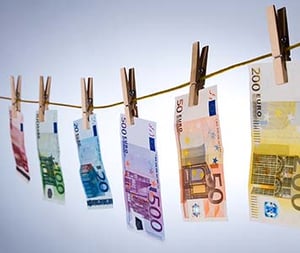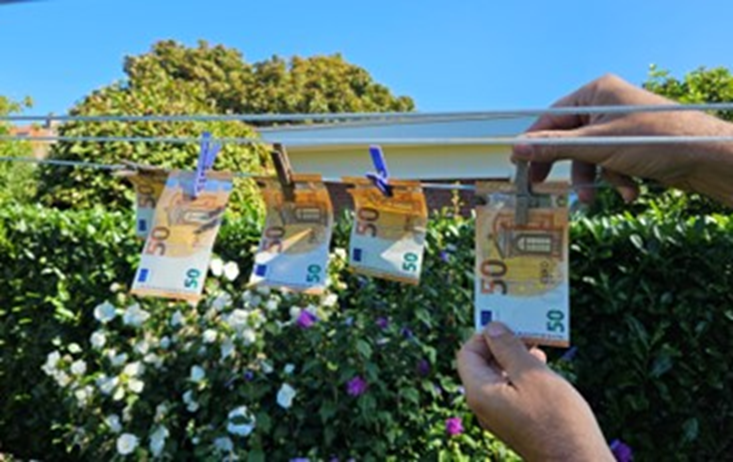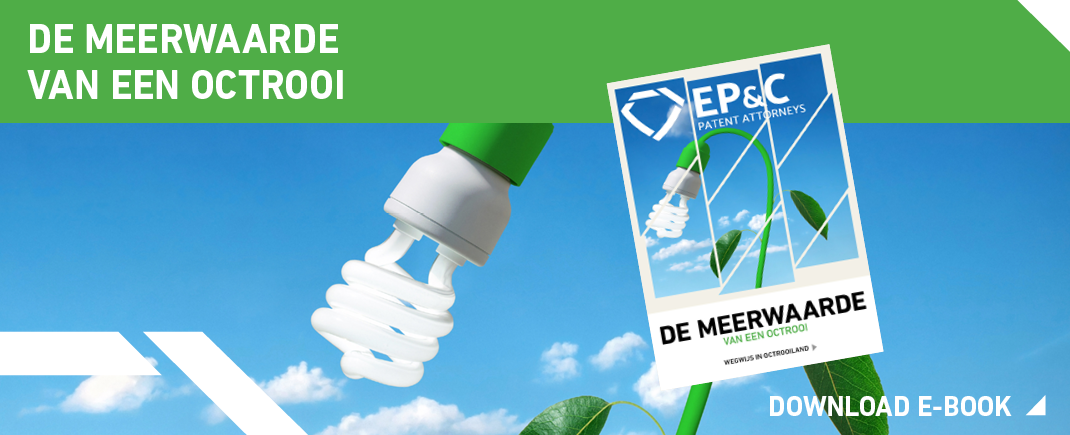Money laundering with patents – fact or fiction?
 This time the plan was to write a blog about what it takes to transfer a patent to someone else, for example, because it has been sold to that other person. And what is a good blog without an appealing example? So I did a quick search using the search term: "transfer patent example". One of the first search results left me somewhat bewildered: 'Money laundering with patents' from the Anti Money Laundering Centre. I had really never heard of this before!
This time the plan was to write a blog about what it takes to transfer a patent to someone else, for example, because it has been sold to that other person. And what is a good blog without an appealing example? So I did a quick search using the search term: "transfer patent example". One of the first search results left me somewhat bewildered: 'Money laundering with patents' from the Anti Money Laundering Centre. I had really never heard of this before!
What is a patent worth?
Patents can be worth a great deal of money. They give the exclusive right to apply, sell, license, etc. an invention, and can also lead to attractive subsidies and tax benefits via the WBSO and the Innovation Box. If a patent is sold, the value of that patent will also need to be determined. There are no rules for this. The lower limit will easily be the costs incurred during R&D and the costs of applying for and obtaining the patent. The upper limit will depend on an estimate of the financial benefits to be gained.

Private deed
Patents are sometimes sold for huge amounts of money. The transaction can take place, for example, between a Dutch company and a firm abroad or vice versa. The transfer of the patent from party A to party B can take place by means of a private deed and it is not compulsory to enter this transaction in the patent register.
Money laundering
The amount to be paid to acquire the patent could be significantly overvalued and could be further increased by transaction costs. The amount received for the sale of the patent has the appearance of legitimacy attached to it. After all there is no fixed valuation system. With such a transfer of a patent, criminals could even try to launder black or criminal money, according to the article by the Anti Money Laundering Centre (AMLC). After all, it looks as if parties are either paying legal money to buy a patent or receiving legal money for the sale of it.
Investigation agencies
Addressing this requires specialist knowledge on the part of the investigating agencies. They will need to have knowledge of the patent system to know whether it is, for example, a registration patent that is being sold or a granted patent that has actually been tested for novelty and inventiveness. What is the actual scope of protection of the patent? They will also need to understand how the patent to be sold should be valued. Complex issues, with sometimes only subjective answers.
Patents are worth money
Let me conclude this blog on a more serious note before you think I am giving you tips on how to get into the criminal world. Money laundering with patents, like all other ways of money laundering, is illegal and immoral. Patents are there precisely to give inventors and innovative entrepreneurs an important edge in the market in a fair and sincere way.
Yet there is a lesson to be learnt from money laundering using patents, which is that they can be worth a great deal of money. So I challenge you to see this story about money laundering as a call to look at your innovations and patents as a source of income. Money laundering is not okay, but monetising innovation certainly is.
The savvy reader will have noticed that you now still don't know how to transfer a patent. Please be patient, I will explain this in my next blog. This time without reference to any criminal activity. That's a promise!

About the author
Since joining EP&C in 1994, I’ve enjoyed working with passionate inventors across a broad range of technologies. My background in mechanical engineering equips me to analyze innovations down to their...
More about Rudi >